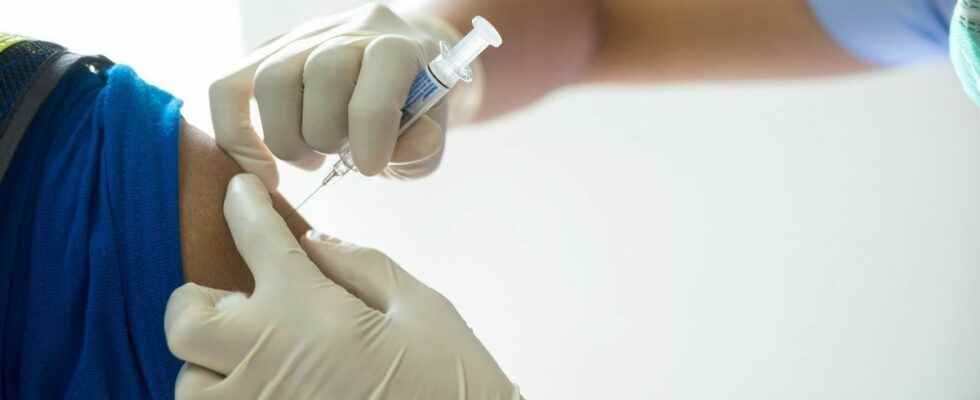Published ,
Reading 3 mins.
The Lancet Respiratory Medicine yesterday proved that the overall risk of myopericarditis after COVID-19 vaccination was very low. A study that would restore the public’s lost confidence in vaccination against COVID-19.
Since the start of the pandemic, vaccination against COVID-19 has been widely criticized, particularly for its cardiovascular adverse effects. But more and more studies want to be reassuring, like the one published Monday, April 11 in the journal The Lancet Respiratory Medicine.
The study proved that the overall risk of myopericarditis – heart inflammation, a combination of myocarditis and pericarditis – after COVID-19 vaccination was very low, affecting 18 people per million vaccine doses. Researchers from the National University of Singapore, who conducted the study, confirmed that this risk was “comparable or lower after COVID-19 vaccination compared to other non-COVID-19 vaccines”.
Myopericarditis: what is it?
Myopericarditis is an inflammation of the heart muscle and in some cases causes serious and permanent heart damage. This pathology mainly affects young men. It is most often caused by viruses, but can also occur after vaccination, in rare cases.
Following messenger RNA (mRNA) vaccination with COVID-19, cases of myopericarditis have been reported, particularly in adolescents and young adults.
A complete analysis
The study by the Singapore researchers aimed to determine whether this increase in reporting was due to a true increase in incidence or the result of improved reporting systems and recall bias.
Their analysis brought together more than 20 studies from international databases that reported incidences of myopericarditis after any type of vaccination between January 1947 and December 2021. Of these, 11 studies focused specifically on COVID-19 vaccinations, covering over 395 million doses of COVID-19 vaccine – nearly 300 million of which were mRNA vaccines. The other studies looked at other vaccinations such as smallpox (2.9 million doses), influenza (1.5 million doses) and others (5.5 million doses). The overall incidence of myopericarditis after COVID-19 vaccination was thus proven to be 18 cases per million doses, compared to 56 cases per million doses for non-COVID vaccinations.
Among COVID-19 vaccines, the risk of myopericarditis was higher in people who received mRNA vaccines (22.6 cases of myopericarditis per million doses) compared to non-RNA vaccines (7.9 cases per million doses ). Reported cases were also higher in people younger than 30 (40.9 cases per million doses), in men (23 cases per million doses) and after the second dose of COVID-19 vaccine (31. 1 case per million doses).
The authors concluded that these results should reassure the public about the rarity of myopericarditis, emphasizing that the benefits of vaccination far outweigh the risk of this rare adverse event. However, the authors acknowledged some limitations to this study since the results only included a small proportion of children under 12 who were recently eligible for vaccination. The researchers thus underlined that the results of could not be generalized to this age group.
Consult a GP online
Encourage vaccination against COVID-19
In a pandemic context where vaccination has been called into question many times, the results of this international study could help to strengthen public confidence in the safety of vaccines against COVID-19.
“The occurrence of myopericarditis after non-COVID-19 vaccination might suggest that myopericarditis is a side effect of inflammatory processes induced by any vaccination and is not unique to SARS-CoV-2 spike proteins in COVID-19 vaccines or to infection”said Jyoti Somani, an infectious disease specialist at the National University Hospital of Singapore, and co-author of the study.
He thus encouraged vaccination against COVID-19: “It also underscores that the risks of such infrequent adverse events should be outweighed by the benefits of vaccination, which include a lower risk of infection, hospitalization, serious illness and death from COVID-19.”.
Margaret Ryan of the Defense Health Agency and clinical professor at the University of California, San Diego (USA) reacted to the published results, recalling that it is essential to continue research. “Scientific knowledge and public health strategies must continue to evolve. Alternative vaccine platforms, vaccine doses or vaccine schedules may reduce the risk of rare adverse events after vaccination, and should be explored in the context of changing infection risk.”she said.
